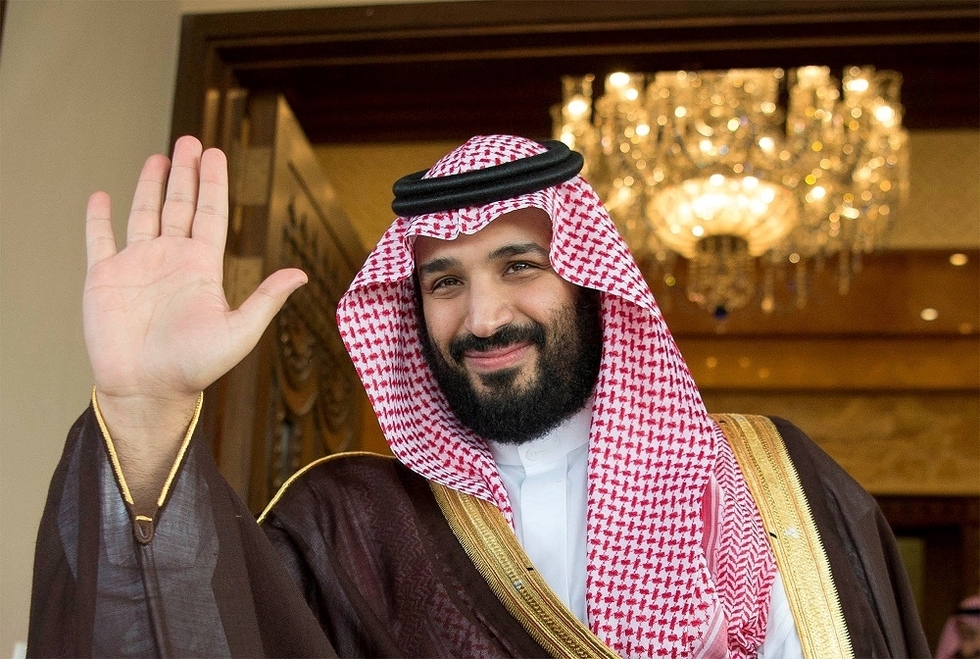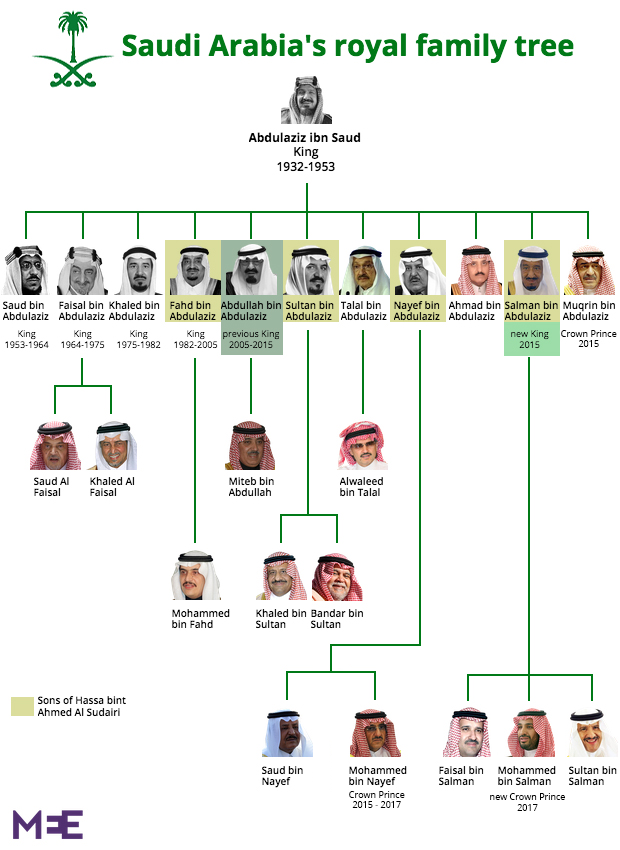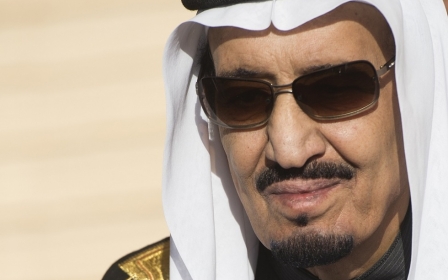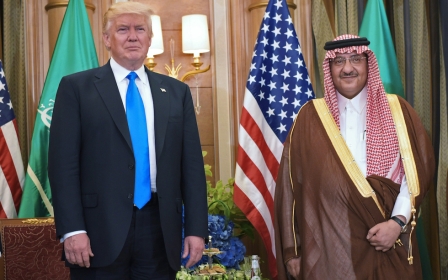Saudi king names son Mohammed bin Salman as new crown prince

Saudi Arabia's King Salman on Wednesday named his son Mohammed bin Salman as crown prince, completing a gradual removal of powers and shift in the line of succession from his cousin Mohammed bin Nayef, 57, who has been fired.
According to a royal decree issued by the official Saudi Press Agency, Mohammed bin Salman, 31, was also named deputy prime minister, and maintains his post as minister of defence.
Mohammed bin Nayef, a veteran law enforcer well-regarded in the West for his efforts to combat al-Qaeda, was also fired from his post as interior minister, the decree said.
Intent on dispelling speculation of internal divisions in the ruling dynasty, Saudi television was quick to show that the change in succession was amicable and supported by the family.
Throughout the early morning it aired footage of Mohammed bin Nayef pledging allegiance to the younger Mohammed bin Salman, who knelt and kissed his cousin's hand.
"I am content," Mohammed bin Nayef said. Mohammed bin Salman replied: "We will not give up taking your guidance and advice."
But in an apparent attempt to appease the family, the decree had a clause that made clear that Mohammed bin Salman won’t be allowed to appoint one of his own sons as his successor.
The appointment of Mohammed bin Salman, also known as MBS, caps a tumultuous two years since Salman, 81, ascended the throne and named his thick-bearded son deputy crown prince, or second in line to the throne.
The royal decree also included an extension of the Eid al-Fitr holiday by a week, from 10 to 17 days, to mark the occasion.
In a conservative kingdom used to ageing leaders, the rise of the ambitious young prince symbolises the hopes of a youthful local population, more than half of which is under 25.
Mohammed bin Salman's public profile rapidly eclipsed that of the crown prince.
Even as deputy crown prince, Mohammed bin Salman has been responsible for running Saudi Arabia's war in Yemen, dictating an energy policy with global implications and launched the 2030 vision for an economy less dependent on oil revenues.
MBS has also taken a hard line on Saudi's regional rival Iran, last month threatening to take the battle "inside Iran", while also ruling out talking to the Islamic republic to resolve regional conflicts.
He heads the Council for Economic and Development Affairs (CEDA), a group of cabinet ministers who meet weekly and which oversees all elements of policy that touch on the economy or social issues like education, health and housing.
Prince Mohammed chairs the supreme board of Aramco, making him the first member of the ruling family to directly oversee the state oil company, long regarded as the preserve of commoner technocrats.
But perhaps most importantly, he also holds the critical position of gatekeeper to his father, King Salman, who in Saudi Arabia's absolute monarchy retains the final say in any major decision of state.
Al-Arabiya television reported that the promotion of the prince was approved by the kingdom's Allegiance Council, and that the king had called for a public pledging of loyalty to Mohammed bin Salman on Wednesday evening in Mecca.
The surprise announcement follows two and a half years of major changes in the Gulf kingdom, which stunned allies in 2015 by launching a war in Yemen, cutting old energy subsidies and in 2016 proposing part-privatisation of state oil company Aramco.
Kuwait's ruler congratulated Saudi Arabia's King Salman for choosing Mohammed bin Salman as his new crown prince, state news agency KUNA said on Wednesday.
The Kuwaiti emir, Sheikh Sabah al-Ahmad al-Jaber al-Sabah prayed for the Saudi king and said he was "looking forward to development and prosperity under the wise leadership" in the neighbouring country.
Other Arab leaders, including Oman’s Sultan Qaboos, Jordan’s King Abdullah, Egypt's Abdel Fattah al-Sisi and Yemeni President Abd-Rabbuh Mansour Hadi also congratulated Prince Mohammed bin Salman on his appointment, according to state media.
Israel's communications minister, Ayoub Kara, said Israel welcomed Bin Salman's annointment, adding that he hoped the change would accelerate the kingdom's rapprochement with Israel.
"Salman’s appointment means more economic cooperation in the Middle East, and not just regarding oil," Kara said in a statement.
"The strengthening of relations with the Trump government is the beginning of a new and optimistic time between Saudi Arabia and regional states, including Israel and the Jewish people."
New MEE newsletter: Jerusalem Dispatch
Sign up to get the latest insights and analysis on Israel-Palestine, alongside Turkey Unpacked and other MEE newsletters
Middle East Eye delivers independent and unrivalled coverage and analysis of the Middle East, North Africa and beyond. To learn more about republishing this content and the associated fees, please fill out this form. More about MEE can be found here.





